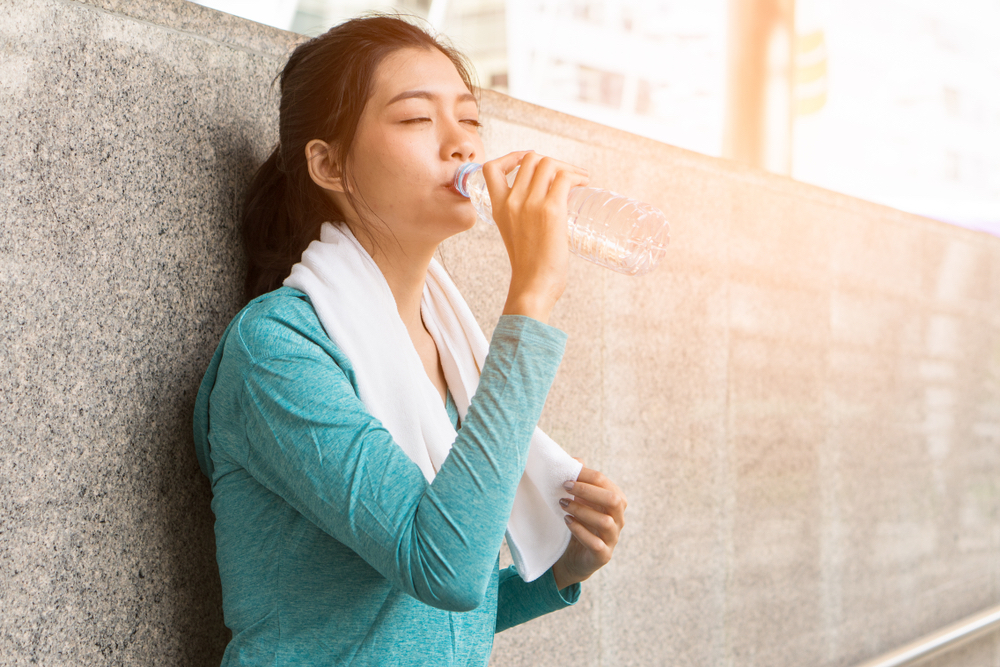
The summer sun may be a welcome relief after cooler weather, but rising temperatures bring their own dangers. Find out how to protect yourself and your loved ones.
You’ve just started to get excited about the nice weather when the first really hot day arrives, and that gorgeous summer you were looking forward to becomes unbearable. But not only that — it could also be deadly. According to the Centers for Disease Control and Prevention, more than 600 Americans die from heat-related illnesses every year.
“Heat-related illness” is a term doctors use that encompasses everything from heat exhaustion and heat rash to heatstroke (also called sunstroke). It occurs when the body can’t cool itself off by sweating. This overheating can cause internal damage, if not caught in time. Here’s how to spot it, or better yet prevent it, when the temperature goes up.
Be alert to heat exhaustion and heatstroke symptoms.
Heatstroke is the most serious form of heat-related illness, but you should also look out for the signs of heat exhaustion before they progress to a life-threatening condition.
“Stop exercising and get medical attention immediately, if you feel exhausted, light-headed or experience other concerning symptoms,” says Jennifer Boozer, DO, a family medicine physician at Keck Medicine of USC and clinical associate professor of family medicine at the Keck School of Medicine of USC.
“Symptoms of heat exhaustion,” Dr. Boozer says, “can include extreme weakness, light-headedness, passing out, coordination problems, headache, abdominal cramps, nausea, vomiting, diarrhea and persistent muscle cramps. Body temperature is usually between 101-104 degrees Fahrenheit.”
If you collapse from heatstroke, your temperature will be above 104 degrees Fahrenheit, and you will experience central nervous system dysfunction, including symptoms such as disorientation, headache, irritability or confusion. “You may also have altered consciousness or even seizures,” Dr. Boozer adds.
Don’t waste a second!
It’s important to treat heat exhaustion and heatstroke as soon as the symptoms are recognized. “In either case, call 911 immediately,” Dr. Boozer says, “and do not wait for paramedics to arrive to take action.” Begin the cooling process with these steps:
- Remove all equipment and extra clothing.
- Get the person into air-conditioning or, if that’s not possible, into the shade.
- Spray the person with cold water from a shower or hose, or apply ice packs or cool wet towels around the neck, armpits and groin. If using wet towels, change them every two or three minutes to keep them cool.
- If the person is not having nausea, vomiting or any alteration of their mental state, have them drink cold water or a sports drink.
“Almost all patients require a period of observation to monitor for complications. These can include electrolyte abnormalities, seizures, respiratory problems, liver damage, kidney damage and injury to the heart, to name a few. Fortunately, there are things we can do to prevent heat-related illness,” Dr. Boozer says.
An ounce of prevention is worth a pound of cure.
Although heatstroke sounds scary, there are many things you can do to protect yourself and your loved ones:
- Plan outdoor activities, like exercising, for the early morning or evening.
- Take frequent breaks for hydration and cooling.
- Wear loose-fitting, light-colored, lightweight clothing.
- Put on sunscreen. A sunburn can raise your risk of heat exhaustion or heatstroke.
- If you work outside, pair up with a co-worker to monitor each other’s condition.
When temperatures rise, it’s a good idea to check up on friends and neighbors who are elderly or otherwise at risk. If we watch out for each other, we can help prevent heat-related illnesses before they happen.
Topics
